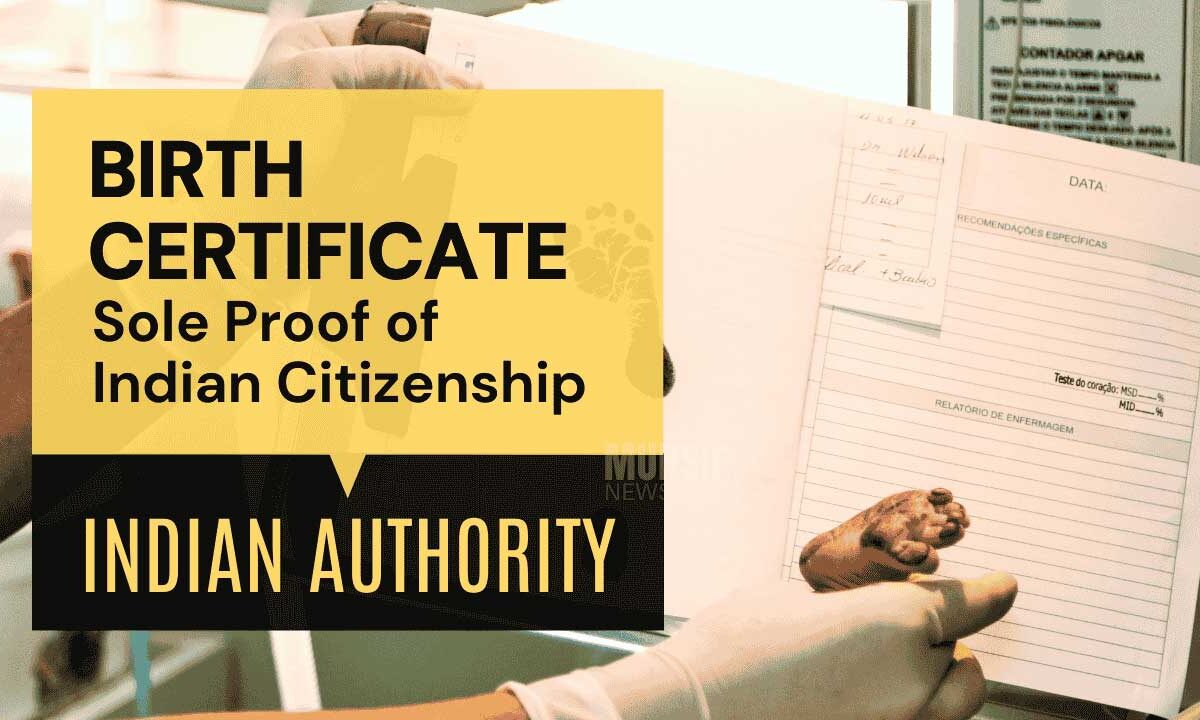Birth Certificate Now Mandatory for Indian Citizenship Proof, UIDAI Confirms Aadhaar, Voter ID Invalid
Aadhaar & Voter ID are NOT citizenship proof! Birth certificates now MANDATORY for passports, voting & more. New rules explained.

New Delhi, 14 July, 2025: In a landmark turn of events redefining identity verification in India, the Unique Identification Authority of India (UIDAI) and the Election Commission of India (ECI) have categorically asserted that neither Aadhaar cards nor Voter ID cards are certificates of Indian citizenship. This strong position, reaffirmed during a July 10, 2025, hearing in the Supreme Court, comes after the government declared the birth certificate to be the preferred document for confirming citizenship and date of birth for vital services.
Also Read: Telangana Ration Card Distribution to Begin Today: CM Revanth Reddy To Launch in Suryapet
The Supreme Court hearing, that of the Special Intensive Revision (SIR) of electoral rolls in Bihar, became the forum for this essential clarification. On behalf of the Election Commission, Senior Advocate Rakesh Dwivedi categorically asserted, “Aadhaar Card cannot be used as proof of citizenship,” highlighting its purpose is only identity verification. UIDAI’s longstanding position, supported by Section 9 of the Aadhaar Act, 2016, holds Aadhaar “does not confer any right of citizenship or domicile.”
Table of Contents
Birth Certificate Takes Center Stage
This breakdown is accompanied by strict new government rules that enhance the birth certificate’s importance:
- New Passport Requirement (2025): Individuals born on and after October 1, 2023, are now asked to submit a birth certificate as sole proof of birth date for passports.
- Registration of Births and Deaths (Amendment) Act, 2023: This Act mandates birth certificates from individuals born after the enactment of the Act for the following essential services:
- Admission to educational institutions
- Preparation of voter rolls
- Issuance of driving licenses
- Government employment appointments
- Aadhaar number creation
What Is Citizenship Evidence? What Isn’t
The government has made sharp distinctions:
- Original Citizenship Documents:
- Birth Certificate (issued under Registration of Births & Deaths Act, 1969)
- Original Indian Passport
- State-issued Domicile Certificate
- NOT Valid Citizenship Proofs:
- Aadhaar Card (Confirms residence/identity only)
- Voter ID Card
- PAN Card
- Ration Card
Bihar Revision Sets National Precedent
The present SIR of Bihar is the height of this more stringent policy. The ECI has also excluded Aadhaar, PAN cards, and driving licenses from its list of accepted citizenship documents for fresh registration. It seeks proof like birth certificates, passports, or domicile certificates. Officials said they had discovered “a large number” of residents of Nepal, Bangladesh, and Myanmar possessing Indian documents like Aadhaar and ration cards, indicating loopholes in the process of verification.
Scheduled Nationwide Roll-out
The Election Commission plans to implement this intensive model of revision nationwide, with all states to be reached by January 1, 2026, as the deadline. The objective is to cleanse electoral rolls of foreign nationals in bulk by rigorously verifying place of birth and citizenship documents.
Implications and Issues
Although targeted at improving national security and electoral integrity, they have far-reaching implications:
- Risk of Disenfranchisement: The Supreme Court warned that rigorous documentation requirements would disproportionately disenfranchise qualified voters, such as migrant workers, seasonal workers, and marginalized groups that may struggle to obtain or retain the necessary documents like birth certificates.
- Impact on Vulnerable Populations: Critics argue that the rules unfairly burden individuals with limited access to administrative services or with a history of frequent movement.
- Stealth NRC Concerns: The opposition and civil society groups are concerned that the exercise is a “stealth implementation” of an NRC, turning an administrative exercise into a pilot for citizenship.
Indian Government Tightens Verification
To verify abuse, UIDAI announced that it would tighten adult Aadhaar enrolment through more robust verification against government records (passports, ration cards) and cross-matching against documents like driving licenses, PAN cards, and electricity bills.
The Supreme Court, in allowing the Bihar revision, directed the ECI to accept Aadhaar, Voter ID, and ration cards as supporting documents but clearly asserted that it is not a binding direction. It also clarified that existing voters do not have to reprove citizenship.
The issuing of the birth certificate to the status of the foundation of citizenship evidence, and coupled with the clear exclusion of Aadhaar and Voter ID for this, is a turning point in the identity and citizenship policy of India. Balancing increased security with safeguarding citizens’ rights, and more importantly the marginalized, is the ultimate challenge as these policies go national.
